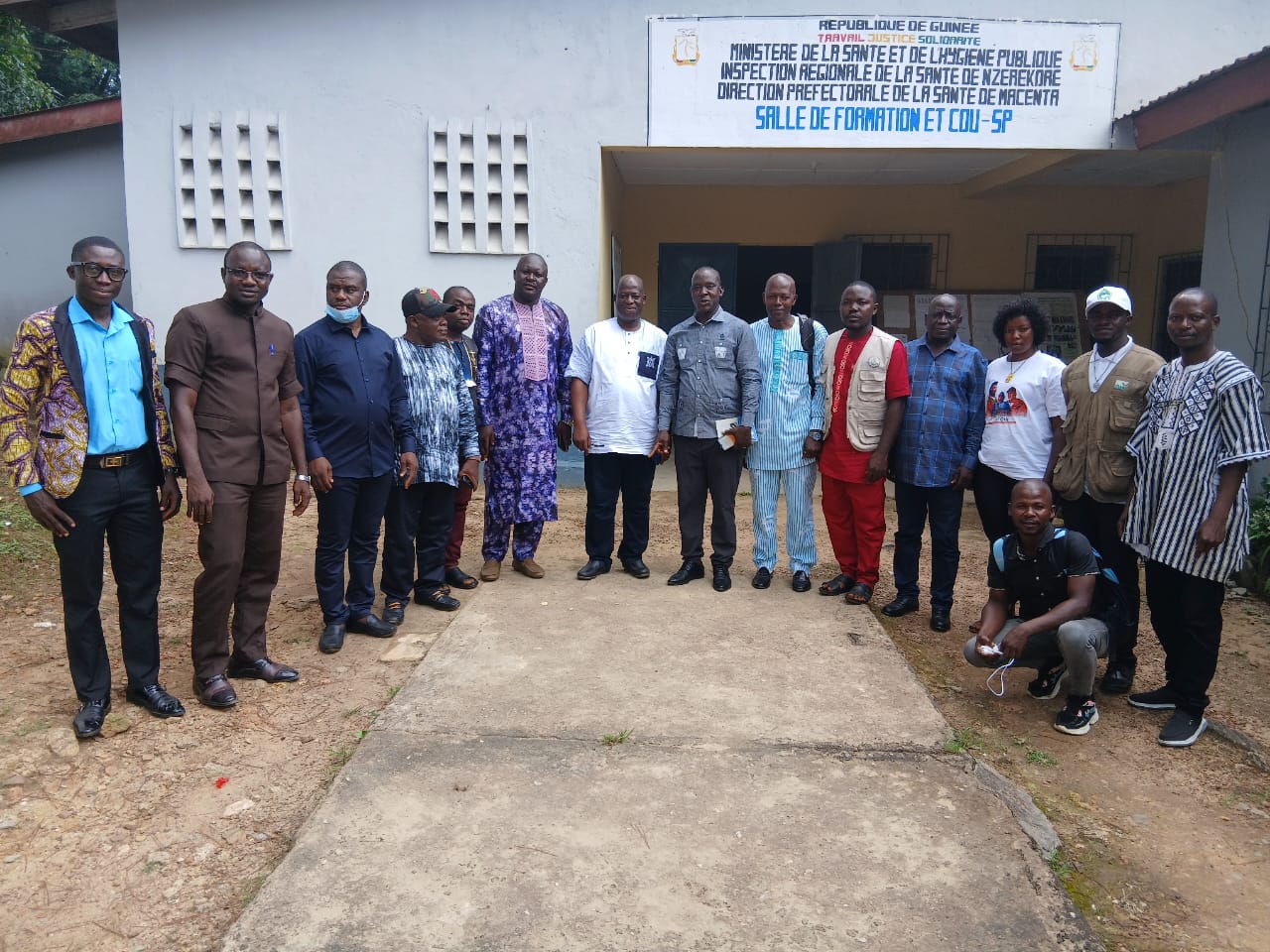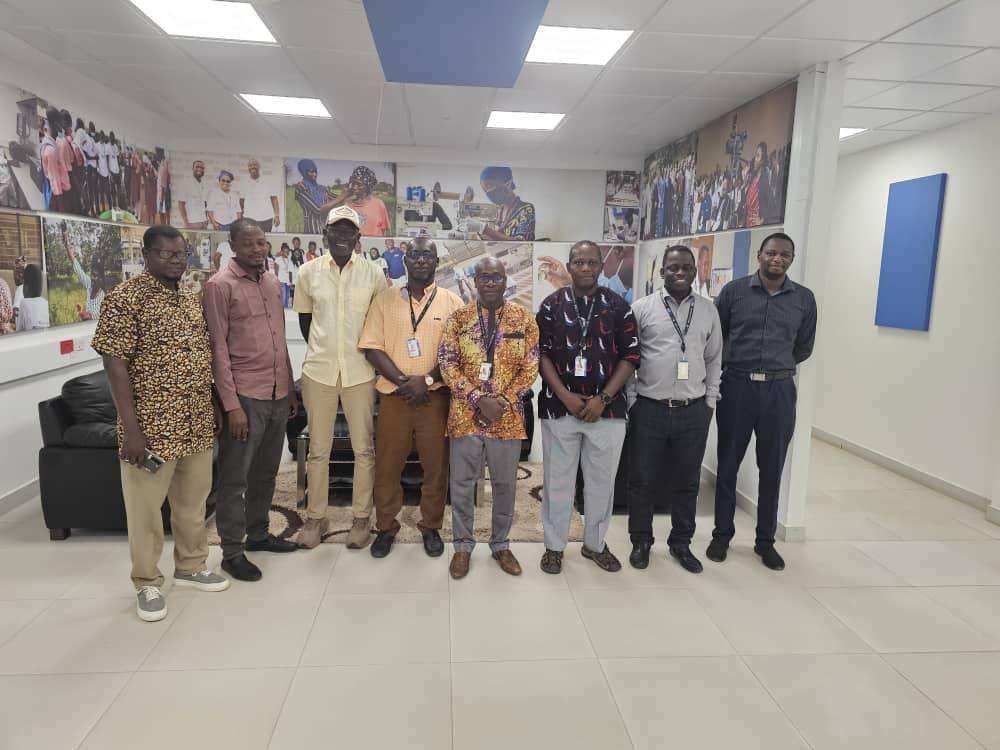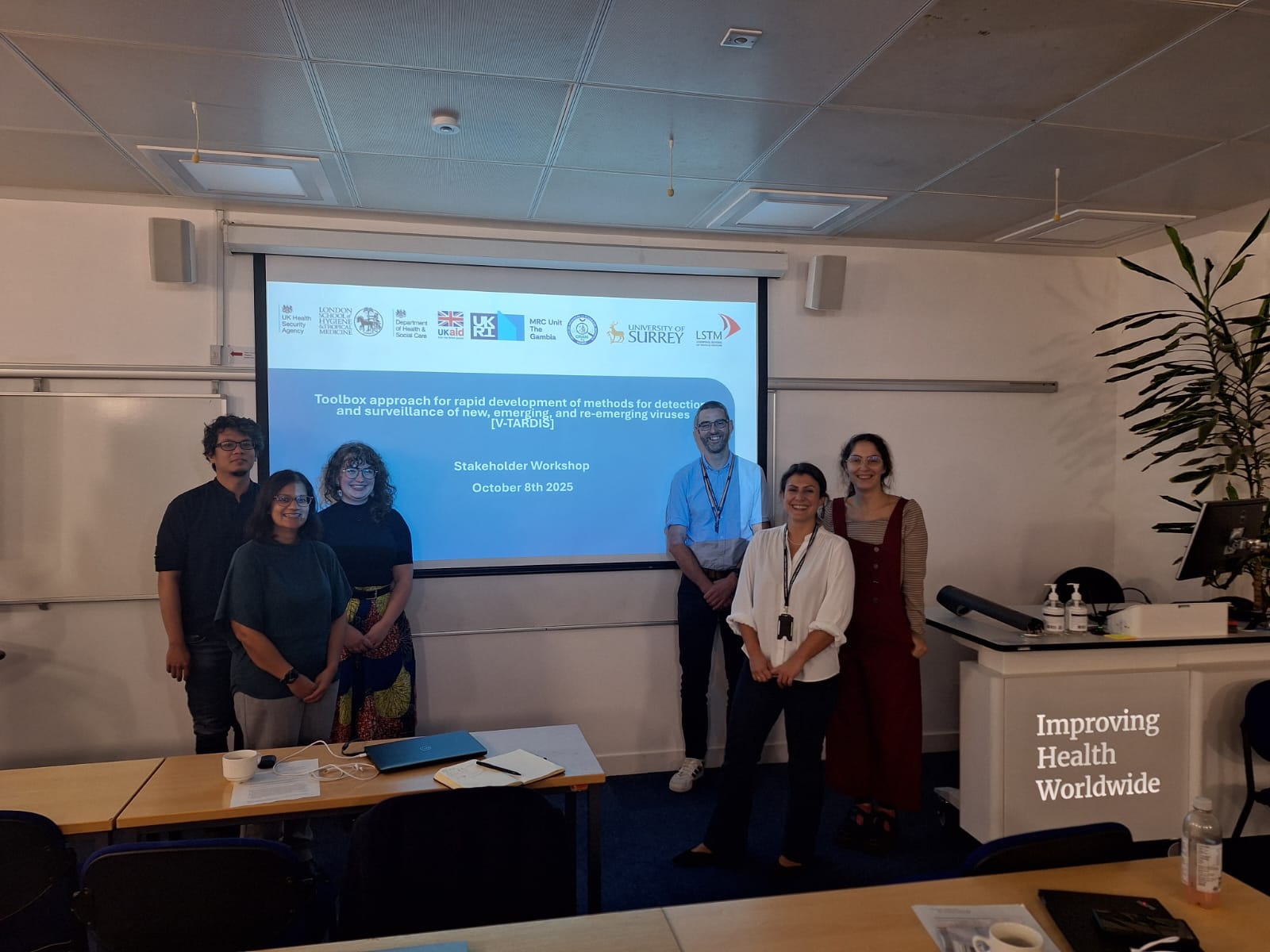


Image credits: Centre de Recherche et d'Analyse Medicale (CRAM) Guinea/MRC Unit the Gambia at LSHTM
UK-PHRST scientists are co-leading a study that brings together scientists from across West Africa to identify a flexible diagnostic “toolbox” of platforms and methods for molecular laboratory technology, aimed at strengthening outbreak preparedness and expanding regional capacity for viral diagnostics. The study includes scientists from The Medical Research Council Unit The Gambia at the London School of Hygiene & Tropical Medicine, Centre de Recherche et d'Analyse Médicale (CRAM) Guinea, Liverpool School of Tropical Medicine and the University of Surrey.

Image credit: LSHTM
Major disease outbreaks like COVID-19, have revealed persistent gaps in countries’ viral diagnostic and surveillance abilities, particularly in low- resource regions. As such, many labs across West Africa continue to face limited access to advanced technologies and training opportunities affecting their ability to detect and monitor viral threats effectively.
The research study
By identifying the suitable components of a potential future flexible lab “toolbox”, the project aims to strengthen diagnostic and surveillance capacity across West Africa. Specifically, it will assess current challenges in viral detection and surveillance and identify priority pathogens and gaps that can be addressed using existing equipment and expertise within the partner institutions.
The research project aims to achieve this by:
- Undertaking a literature review to understand what technology is being used across Africa for viral surveillance and diagnostics
- Conducting a stakeholder survey of West African scientists and hold a subsequent stakeholder workshop to understand the key local challenges for virus detection and surveillance, identify priority pathogens and understand the gaps that could be bridged by developing new approaches using existing infrastructure
Expected outcomes
The study will take a deep dive into the capacities of laboratories across the region, from local to national level - providing a comprehensive overview of current technologies, gaps and opportunities.
These insights will then be used to identify what workflows, methods and analysis pipelines would be needed in a flexible diagnostic “toolbox” to strengthen preparedness for future outbreaks.
Finally, through its emphasis on direct partnership, the study will help foster long term connections between scientists and institutions that will enhance the capacity for viral diagnostics across the region.
|
Dr Sonal Shah, molecular epidemiologist at UK-PHRST and Assistant Professor at London School of Hygiene & Tropical Medicine said: “This workshop provided an excellent opportunity to bring together West African scientists to explore how we can collectively strengthen regional outbreak preparedness. I hope this study will support meaningful and sustainable improvements in viral diagnostic and surveillance capacity, while also fostering stronger regional collaboration.” |